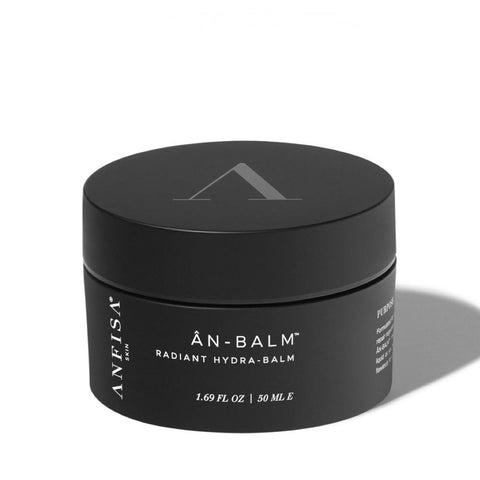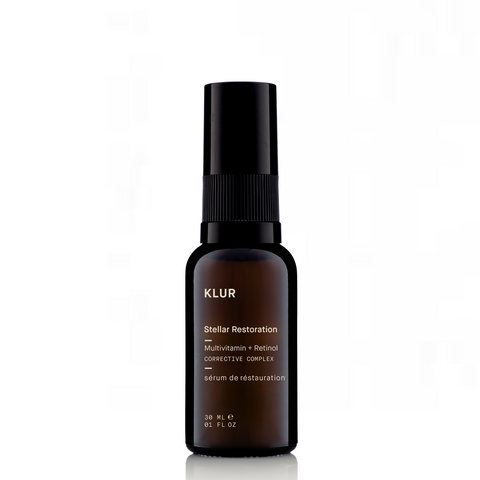Free shipping for HK orders HK$600+
Do You Have Gluten Face? How Does Gluten Affect Our Skin and Appearance?
April 15, 2025
Diet has an undeniable connection with our skin, and even our appearance. One typical example is how consuming an excessive amount of foods rich in beta-carotene, including carrots, apricots, pumpkins, sweet potatoes, among others, may cause the skin to turn yellow or even orange.
Now, the term "gluten face" has been gaining more and more attention in the skincare and beauty industry.
But what exactly is gluten face? How does it manifest? What impact does it have on the skin and appearance? Let's break it down!
Wheat, barley, and rye contain a family of proteins collectively known as gluten. Essentially, bread, cakes, noodles (excluding those made from rice), vermicelli, pasta, udon, grains, cereals, biscuits, and even soy sauce and beer, all contain gluten. Additionally, some processed foods like oats also contain gluten.
The term "gluten face" refers to the potential effects of gluten intake on the skin and appearance. Studies indicate that even in the absence of wheat allergy, gluten sensitivity (also known as celiac disease), or gluten intolerance, gluten can cause systemic inflammation in the body through various mechanisms, which can subsquently manifest on the face. The following are some typical symptoms of a gluten face:
|Inflammation・Sensitivity・Swelling
Consuming gluten may exacerbate chronic inflammation in the body, leading to skin issues such as redness, swelling, and sensitivity, and even triggering or worsening conditions like eczema, rosacea, and psoriasis.
Product Recommendation
MARIE REYNOLDS LONDON
Restore Probiotic Mask <- Click to Shop
Product Recommendation
ANFISA
ÂN-BALM™ Radiant Hydra Balm <- Click to Shop
|Chronic Acne・Cystic Acne
Foods containing gluten, when consumed, are broken down into glucose in the body, which then enters the bloodstream and raises blood sugar levels. In response to the elevated blood sugar, the body releases insulin to help transport glucose from the blood into cells for energy or storage. However, increased insulin levels can disrupt the hormonal balance in the body, leading to issues such as cystic acne, chronic acne, and pimples.
Product Recommendation
KLUR
Stellar Restoration Corrective Complex <- Click to Shop
Product Recommendation
ANFISA
ÂN-DEW™ 10% Azelaic Acid + PHA Serum <- Click to Shop
|Dryness・Itchiness
For some individuals, consuming gluten can stimulate the release of histamine in the body. When histamine levels are elevated, the skin may experience sensitivity, hives, dryness, and itchiness. Under certain circumstances, gluten can also reduce the body's ability to absorb nutrients such as vitamins A and E, as well as essential fatty acids such as omega-3, which can lead to dry and itchy skin.

Product Recommendation
HANISUL
Less More MO-A™ Advanced Ampoule <- Click to Shop
Product Recommendation
HANISUL
Less More Noni Mild Cream <- Click to Shop
|Puffiness
In some cases, gluten-induced systemic inflammation in the body can lead to fluid retention, resulting in overall facial puffiness and swelling. This can also make the area around the eyes appear more puffy, and exacerbate the severity of under-eye bags.

Product Recommendation
ANFISA
holi(bright) Ageless Eye Serum <- Click to Shop
Product Recommendation
AGENT NATEUR
holi(lift) Ageless Lifting and Firming Serum <- Click to Shop
|Hyperpigmentation
When the skin is inflamed, as part of the body's immune response, the skin signals to melanocytes to produce excessive levels of melanin. When this excess melanin accumulates and deposits, it can cause the skin to become dull and even lead to visible dark spots.
Product Recommendation
KLUR
Brilliant Light Multi-Correctional Repair Serum <- Click to Shop
Product Recommendation
EATH LIBRARY
The Pure Wonder Active Serum <- Click to Shop
As mentioned above, regardless of whether one has owheat allergy, gluten sensitivity, gluten intolerance, or not, research indicates that gluten can cause skin inflammation through different mechanisms:
|Autoimmune Response
When allergic to wheat or gluten, consuming gluten can trigger an autoimmune response. The body would thud produce antibodies that may attack the skin, which could then result in, trigger, or worsen inflammatory issues such as hives, eczema, rosacea, psoriasis, redness, and itchiness.
Product Recommendation
AGENT NATEUR
holi(radiance) OptiMSM® + CERAMOSIDES™ <- Click to Shop
|Leaky Gut Syndrome
The intestinal wall is lined with a single layer of cells that act as a barrier to control what substances can enter the bloodstream. When this barrier is compromised, known as leaky gut syndrome, toxins, undigested food particles, and bacteria can pass through the intestinal wall into the bloodstream, triggering immune responses and systemic inflammation. Some studies suggest that gluten may contribute to leaky gut syndrome.
Leaky gut syndrome-induced systemic inflammation is likely to manifest in various ways on the skin, including acne, eczema, rosacea, psoriasis, skin sensitivity, disrupted skin microbiome, and reduced skin repair and regeneration capabilities.
Product Recommendation
AGENT NATEUR
holi(mane) Collagen + Pearl <- Click to Shop
|Immune System Activation-Induced Systemic Inflammation
Gluten contains a protein component called "glutenin" that can activate immune cells in the intestine. When these immune cells are activated, an inflammatory response would be triggered, leading to systemic inflammation. This type of inflammation may affect various organs and tissues, which can then exacerbate existing skin issues or cause new inflammatory reactions on the skin.
Product Recommendation
AGENT NATEUR
calm(beauty) Spermidine + Taurine <- Click to Shop
|Increased Release of Pro-Inflammatory Molecules
Consuming gluten may lead to the release of pro-inflammatory molecules such as cytokines and chemokines in the intestines, resulting in systemic inflammation.
Product Recommendation
MARIE REYNOLDS LONDON
Ocean EFA Krill Oil <- Click to Shop
|Altering Gut Microbiome
The gut microbiome plays a crucial role in immune function and inflammation. When the gut microbiome is healthy, with a balance of good and bad bacteria, the gut and the body would be healthy. However, consuming gluten may affect the composition of the gut microbiome, and an imbalanced gut microbiome can promote inflammation and lead to systemic inflammatory responses.
Product Recommendation
MARIE REYNOLDS LONDON
Probio+ 8-Strain Probiotics <- Click to Shop
|Genetic Factors
Some individuals may have genetic susceptibility that makes them susceptible to gluten-induced inflammation even in the absence of wheat allergy, gluten sensitivity, or leaky gut syndrome.
Product Recommendation
MARIE REYNOLDS LONDON
Liver Rescue <- Click to Shop
As established above, gluten can easily trigger inflammations in the body, which can then result in a series of symptoms associated with "gluten face." Therefore, if you want to eliminate skin inflammation and acne once and for all, while maintaining a tight and non-puffy face, including around the eyes, you should really control your gluten intake both in the short and long-term.
Whilst, if any of the following conditions apply to you, you should completely eliminate all gluten from your life. Otherwise, no matter what skincare products you use, what treatments you do, what medicine you take, or how many doctors you see, "gluten face" and all of its associated skin inflammatory issues will persist:
|Wheat Allergy
Wheat allergy is an immune system response to proteins such as albumin, globulin, glutenin, and gluten found in wheat. Symptoms may include hives, skin redness, itchiness, allergic rhinitis, asthma, difficulty breathing, nausea, diarrhea, and in severe cases, anaphylactic shock.
Since wheat allergy is related to the immune system, it can be confirmed through laboratory testing to determine if you have it.
|Gluten Allergy or Sensitivity
Gluten allergy (or gluten sensitivity or celiac disease) is an autoimmune disease caused by the consumption of gluten found in wheat, barley, and rye. Gluten allergy can lead to intestinal damage, poor nutrient absorption, gastrointestinal problems, fatigue, inflammation, and other symptoms.
Similar to wheat allergy, gluten allergy can be confirmed through laboratory testing.
|Gluten Intolerance
You might say, "I have already done food allergy tests, and they show that I am not allergic to wheat or gluten!". Contrary to popular belieft, wheat or gluten allergy and gluten intolerance are completely different issues.
Gluten intolerance refers to the body's inability to effectively digest or metabolize gluten without involving the immune system. Therefore, it fundamentally differs from wheat or gluten allergy. Symptoms of gluten intolerance include gastrointestinal issues such as bloating, flatulence, diarrhea, abdominal pain, inflammation, and even feeling full all day after consuming gluten.
Since non-celiac gluten intolerance is not related to the immune system, there are currently no laboratory tests specifically for this condition. Confirmation relies on personal bodily experiences, but this condition affects more people than imagined.
Also in The Journal

The Hidden Culprits of Skin Aging: Autophagy Decline and Zombie Cells
January 07, 2026
Don't just mask aging—reverse it. Learn how clearing Senescent Cells and restarting Autophagy creates lasting youthful skin.

The Anti-Aging Gold Standard: How Retinol Reshapes The Skin
November 12, 2025
Learn why retinol is the gold standard for anti-aging, how it works, what similar ingredients exist, and some common myths and misconceptions.

The Gut-Skin Connection: The Path to Healthy Skin
October 26, 2025
Acne, eczema, rosacea, and sensitivity can all be linked to the gut health, and even gluten? Learn all about the connection between the gut and the skin.
+Recent Articles
-
The Hidden Culprits of Skin Aging: Autophagy Decline and Zombie Cells
January 07, 2026
-
The Anti-Aging Gold Standard: How Retinol Reshapes The Skin
November 12, 2025
-
The Gut-Skin Connection: The Path to Healthy Skin
October 26, 2025
-
The Secret to Reversing Skin Aging! How Growth Factors & Peptides Help Turn Back the Clock
October 13, 2025
-
The Best Ways and Times to Take Different Supplements
August 19, 2025
-
Luxury vs. Budget-Friendly Skincare Products——What Are Their Differences?
August 06, 2025
-
How to Prevent and Improve Post-Inflammatory Hyperpigmentation (PIH)
July 10, 2025
-
How to Prevent and Improve Post-Inflammatory Erythema (PIE)
July 08, 2025
-
The Ultimate Cleansing Guide to Improve Skin Conditions
June 03, 2025
-
Do You Have Sugar Face? How Does Sugar Affect Our Skin and Appearance?
May 20, 2025
Subscribe to get skincare knowledge delivered to your inbox!
















